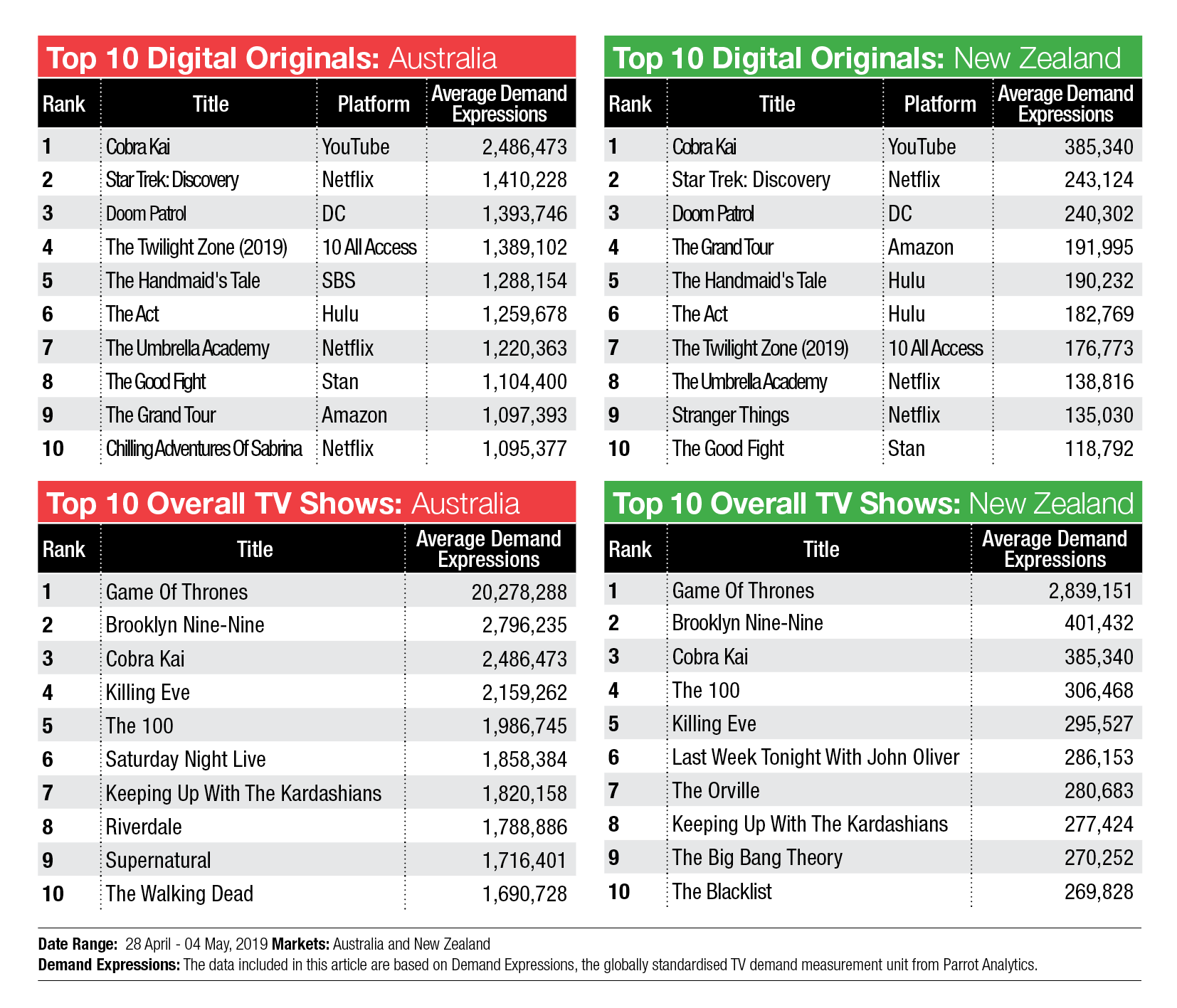As Game of Thrones comes to an end it refuses to slow down after airing the third episode of it’s eighth and final season The Long Night which featured the Battle of Winterfell with the White Walkers. Culminating an arc that was established in the first scene of the series has helped the show reach even loftier heights generating a ginormous 20.27m (Aus) demand expressions to sit atop the Overall TV charts. This cruises past the previous high for the year of 18.18m, by who else but Game of Thrones.
GoT has not relinquished its grip on the top spot of the Overall TV chart since the calendar flipped over to February and in that time has recorded four average demand expression scores* over 10m, while no show this year has gotten over 4m once. The show also retained top spot in NZ with 2.83m, an increase of over 600k.
Cobra Kai occupies top spot on the Digital Originals chart in both Aus and NZ, with this being the first time in NZ after featuring at #1 in Aus for the first time last week. The series features the original antagonist Johnny Lawrence (William Zabka), seeking redemption by reopening the infamous Cobra Kai karate dojo, reigniting his rivalry with a now successful Daniel LaRusso played by the original Karate Kid Ralph Macchio.
The big mover this week in the Digital Originals charts is The Handmaid’s Tale starring Elisabeth Moss which returns to both the Aus and NZ charts in fifth spot. This was assisted by the release of the trailer for The 13-episode third season which will premiere on SBS with a double-episode season premiere at 8.30pm, Thursday, June 6. The show that drops off the chart in Aus is Stranger Things, while the Chilling Adventures of Sabrina loses its spot in NZ.
While in the Overall TV charts the biggest movement was by The 100, off the back of its season six premier which sees it enter the charts at #5 in Aus and #4 in NZ. The other show of note was Riverdale entering the Overall TV chart for Australia at #8 after airing its first episode without Luke Perry.

* Demand Expressions represent the total audience demand being expressed for a title, within a country, on any platform. The audience demand is a weighted, country-specific measure of demand. Television demand data captures what content people want in a particular country.
